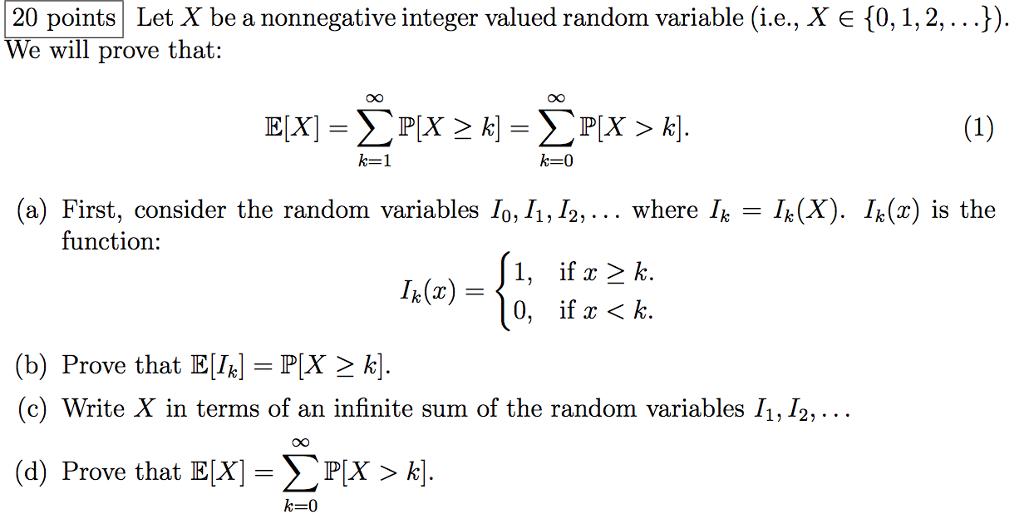Question
20 points Let X be a nonnegative integer valued random variable (i.e., X = {0, 1, 2, . . .}). We will prove that:

20 points Let X be a nonnegative integer valued random variable (i.e., X = {0, 1, 2, . . .}). We will prove that: E[X] = P[X > k] = P[X > k]. k=1 k=0 (1) (a) First, consider the random variables I0, 11, 12,... where Ik = Ik(X). Ik(x) is the function: (1, if x > k. Ik(x) = if x < k. (b) Prove that E[Ik] = P[X > k]. (c) Write X in terms of an infinite sum of the random variables I, 12, ... (d) Prove that E[X] = P[X > k]. k=0
Step by Step Solution
There are 3 Steps involved in it
Step: 1

Get Instant Access to Expert-Tailored Solutions
See step-by-step solutions with expert insights and AI powered tools for academic success
Step: 2

Step: 3

Ace Your Homework with AI
Get the answers you need in no time with our AI-driven, step-by-step assistance
Get StartedRecommended Textbook for
Statistical Inference
Authors: George Casella, Roger L. Berger
2nd edition
0534243126, 978-0534243128
Students also viewed these Finance questions
Question
Answered: 1 week ago
Question
Answered: 1 week ago
Question
Answered: 1 week ago
Question
Answered: 1 week ago
Question
Answered: 1 week ago
Question
Answered: 1 week ago
Question
Answered: 1 week ago
Question
Answered: 1 week ago
Question
Answered: 1 week ago
Question
Answered: 1 week ago
Question
Answered: 1 week ago
Question
Answered: 1 week ago
Question
Answered: 1 week ago
Question
Answered: 1 week ago
Question
Answered: 1 week ago
Question
Answered: 1 week ago
Question
Answered: 1 week ago
Question
Answered: 1 week ago
Question
Answered: 1 week ago
Question
Answered: 1 week ago
Question
Answered: 1 week ago
View Answer in SolutionInn App



